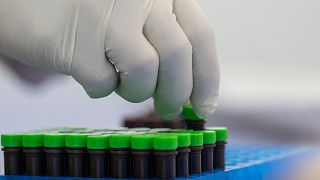WHO
Progress has been made in terms of improving sanitation and hygiene worldwide, but 2.1 billion people globally still lack access to safe drinking water.
1.7 billion people still lack basic hygiene services at home. 2.1 billion lack access to safely managed drinking water. And 3.4 billion people worldwide lack safely managed sanitation.
These are some of the findings of a new report released by the World Health Organisation on Tuesday.
The document assembled data on the state of hygiene, access to safely managed sanitation and menstrual health for women and girls from around the world.
Globally, rural areas lag behind urban centres, where sanitation is generally more developed, although coverage for hygiene and drinking water has stagnated in cities around the world.
The report also highlighted that 106 million people drink directly from untreated surface sources of water.
Where water infrastructure is lacking, women and girls are primarily responsible for collecting water, according to the available data, which means that they spend less time on other activities. They also face inequalities relating to menstrual health, as menstruation in many countries means that they are less likely to participate in activities such as school, work, and socialising.
The WHO called for accelerated action on these issues, especially for the most marginalised communities.
Dr Ruediger Krech, Director a.i for Environment, Climate Change and Health at the World Health Organization, said: "Water, sanitation and hygiene are not privileges, they are basic human rights."













01:07
WHO reports rapid spread of Mpox with 17 deaths in Africa over recent weeks
01:14
Cholera surges globally as vaccine shortfalls and poverty fuel resurgence
00:31
RSF Commander admits "violations" after hundreds of civilians reportedly killed in el-Fasher
01:11
South Africa gives twice-yearly HIV prevention jab the green light
01:28
WHO leads first medical evacuations from Gaza Strip since ceasefire
00:28
DRC begins countdown to end of Ebola outbreak as last patient recovers